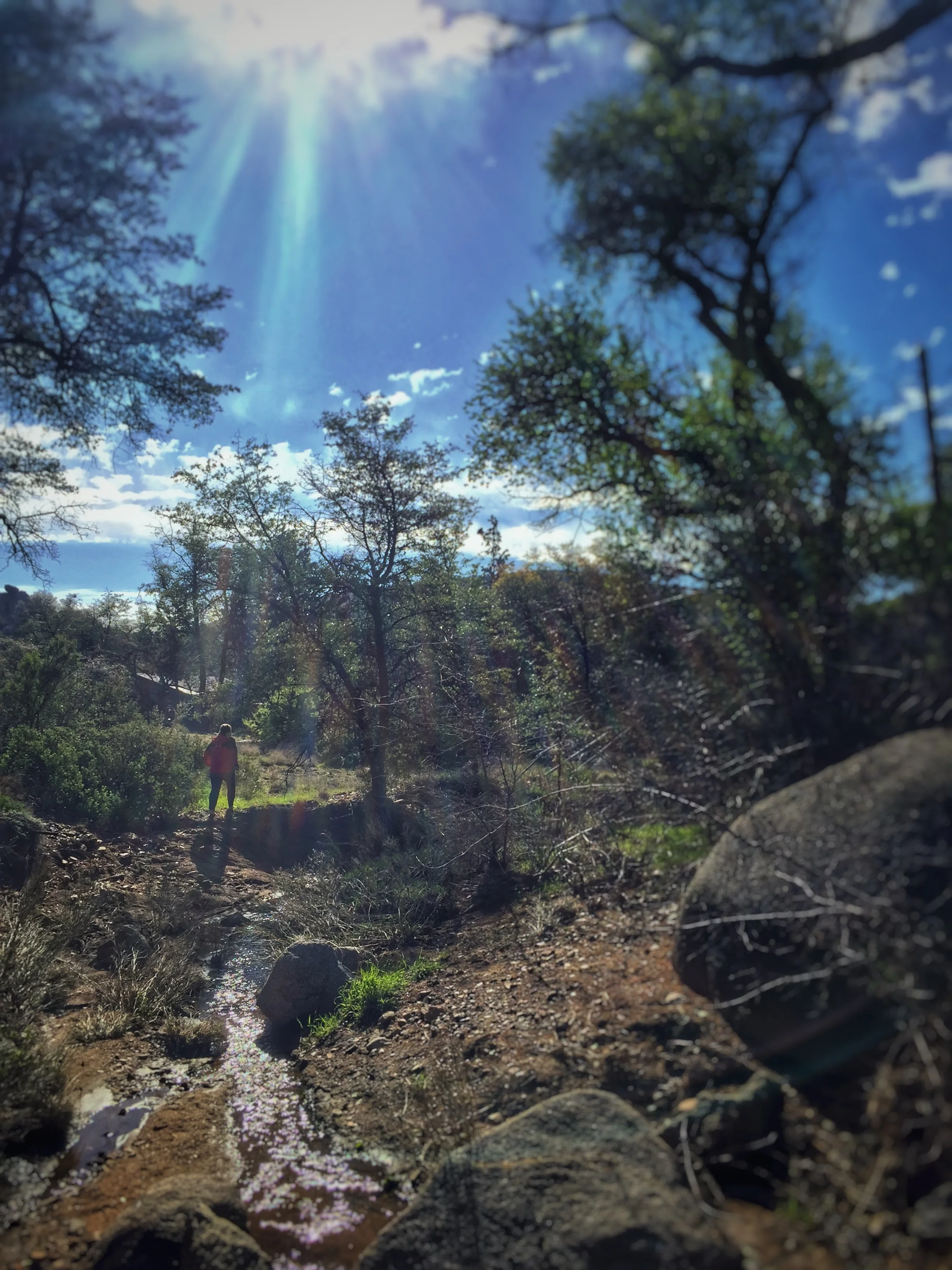Lent 3A2017
Exodus 17:1-7, John 4:5-42
by Pastor Sarah Stadler
The Real Work
a poem by Wendell Berry
It may be that when we no longer know what to do
we have come to our real work,
and that when we no longer know which way to go
we have come to our real journey.
The mind that is not baffled is not employed.
The impeded stream is the one that sings.
By the power of God, the Israelites had escaped slavery in Egypt, successfully crossed the Red Sea, fled from the Egyptian army, and found refuge in the wilderness and even manna each morning laying on the ground like dew to feed them. They didn’t know it at the time, but they would wander in the wilderness for forty years while they searched for the promised land. They would soon receive the Ten Commandments and a host of other laws. In the meantime, the people were thirsty. The wilderness into which they had been spewed was much like our own desert landscape here in Arizona: dry, harsh, prickly, sandy, home to a plethora of insects and reptiles. They had manna to eat but no water to drink. And the people of Israel began whine to Moses. “Give us water to drink…Why did you bring us out of Egypt, to kill us and our children and livestock with thirst?” So, nevermind that God working through Moses delivered them from slavery and led them through the Red Sea and enabled them to escape the Egyptian army and fed them with manna every day. Still, their complaint came from genuine need; we know that people need water even more than they need food in order to survive. And because survival is what they sought, they no longer knew what to do. They no longer knew which way to go. They came to their real work and their real journey: trust in God.
The Israelites were truly baffled, just as Wendell Berry wrote, baffled about why God would lead them out of slavery into what looked like certain death. Traveling in the desert without water is not possible. Why would God do such a thing to God’s beloved people? This is a reasonable question.
“But perhaps when we get to the place of not knowing where to go or what to do, that is when our real work emerges. ”
I am similarly baffled, and I wonder if you are too. I mean, I really am. This morning, my bafflement is not really about the classic question of why God allows suffering in the world, although that too is baffling. This morning, my bafflement is more a question of why God leads me, leads us to difficult places, to places where I don’t know the answers to the questions in front of me, to places where I don’t have control. I have always been a fan of control, of answers, of clear expectations, of being able to fulfill some ideal. But perhaps when we get to the place of not knowing where to go or what to do, that is when our real work emerges. That is when our real journey begins, the work and the journey of trust.
Many times, people have sat in my office and told me about difficult things going on in their lives: about broken relationships or illness or work or death or addiction or… People have come to me looking for answers, for the way to go, the thing to do. People are baffled. What I realized one day—I think I’d been here at Grace just a few months—I realized when someone came to me that, though I didn’t have the answers they sought, God did. So I said: God will work—in this situation. God is already working in this situation. Now, I don’t have the answers. I don’t know how God is going to work. I don’t know when God is going to work. I don’t know through whom God is going to work. But this I know: God will work, and God sees the whole picture. And so, the real work and the real journey is not controlling everything, is not knowing everything but trusting God.
Notice that, when the Israelites were thirsty in the desert, they didn’t cry out to God. They complained to Moses. I laugh because they remind me so much of myself. When I get in situations where I don’t know where to go or what to do, it rarely leads me directly to prayer. Instead, it leads me to whine or complain to other people. It leads me to try and figure out a solution on my own.
“How does God do anything in this world except through us?”
I wish there were a formula for trusting God. I mean, I really wish they were. That would be helpful. I don’t think it means that we lay down and refuse to do anything. I don’t think trusting God means we expect God to do everything, far from it. How does God do anything in this world except through us? Each day, we go about our lives and in the process answer the prayers of God’s people. I think that, sometimes, getting to that place in the wilderness where we don’t have water and there’s nothing else to drink but sand and rocks, I think that place can almost be helpful, almost. Because it is in this place that we let go of knowing and controlling and embrace trusting.
It may be that when we no longer know what to do
we have come to our real work,
and that when we no longer know which way to go
we have come to our real journey.
The mind that is not baffled is not employed.
The impeded stream is the one that sings.


